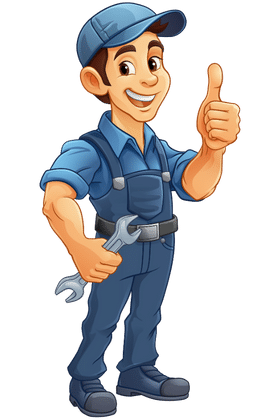Save Water & Money

Question:
My water bill is quite high. As far as I know there are no leaks in taps. What could contribute to a high water bill and how can I reduce it?

Answer:
Water is one of the planets most valuable resources so it is important not to waste it. If you feel your water bill is too high, or that your consumption is more than it should be, the first thing you should is check for leaks. Often leaks are concealed or unnoticeable until you receive your bills, and then you may receive the shock of your life. Water leaking from pipes, toilets, taps and other fixtures can all contribute to a high water bill without your knowledge. Some leaks can be sporadic and require some investigation. Other leaks can be very obvious. It doesn’t matter what type of leak you have, there are solutions to help you find them.
How to Detect a Leak?
1. Locate Your Water Meter:
If you are unsure about the location of your water meter, you can contact your local water authority for assistance. They should be able to provide you with the necessary information. Typically, water meters are installed outside the house, near the property line, in a covered box or underground.
2. Find the Meter Dial:
Once you have located your water meter, you need to locate the meter dial. It is usually a round dial with numbers and indicators on its face. The dial may have a triangular or a small rotating wheel-shaped indicator.
3. Ensure Water Fixtures are Not in Use:
Before you begin the leak detection process, make sure that all water fixtures in your house are not in use. This includes faucets, showers, toilets, washing machines, dishwashers, and any other appliances that use water.
4. Observe the Meter Dial:
Look closely at the meter dial and observe the indicators. Check if the triangular or wheel-shaped low-flow indicator is moving. These indicators are designed to detect even small amounts of water flow. If you notice any movement in the indicator, it suggests that there might be a leak or a water-consuming device running in your home.
4. Observe the Meter Dial:
Look closely at the meter dial and observe the indicators. Check if the triangular or wheel-shaped low-flow indicator is moving. These indicators are designed to detect even small amounts of water flow. If you notice any movement in the indicator, it suggests that there might be a leak or a water-consuming device running in your home.
5. Check Visible Fixtures:
Start inspecting all the visible fixtures in your house that use water. Begin with the most common sources of leaks, such as toilets, faucets, hot water systems, and garden taps. Examine these fixtures for any signs of leakage, such as dripping water, pooling water, or wet spots. If you find any leaks, they should be repaired promptly.
6. Call a Local Plumber:
If you have checked all visible fixtures and still cannot find the source of the leak, it is advisable to seek assistance from a professional plumber. They have the expertise and tools to identify hidden leaks, such as underground burst pipes or leaks within the walls. Promptly fixing such leaks is crucial to prevent further damage and reduce water wastage.
Free Water Leak Inspections – Save Water and Prevent Damage
Remember, detecting and repairing water leaks promptly is essential to conserve water, prevent property damage, and save on utility costs. At The Plumbing & Electrical Doctor you always get a free inspection whenever we attend to your property.
Take the opportunity to discuss the options with the local plumbers if you think you may have a leak at your place. Serving areas in Canberra, Newcastle, Central Coast, Hunter Valley, Lake Macquarie, and Port Stephens.
THE DOCTOR GETS IT DONE
